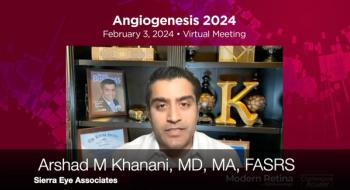
Sydney M Crago, the editor of Modern Retina, talks with Arshad M Khanani, MD, MA, FASRS, about the expanded efficacy data from the GATHER 2 trial for geographic atrophy (GA).

Sydney M Crago, the editor of Modern Retina, talks with Arshad M Khanani, MD, MA, FASRS, about the expanded efficacy data from the GATHER 2 trial for geographic atrophy (GA).

Trial will analyze efficacy, safety of AVD-104 versus avacincaptad pegol to treat GA

The company’s ANX007 global pivotal program in geographic atrophy is expected to start in mid-2024. It is the first pivotal trial to use vision preservation as a primary outcome measure in GA.

Anchored matching-adjusted indirect comparison may aid decision-making

The drug is being evaluated on its safety, tolerability and pharmacokinetics of intravitreal single-rising doses and multiple doses as a potential treatment for GA.
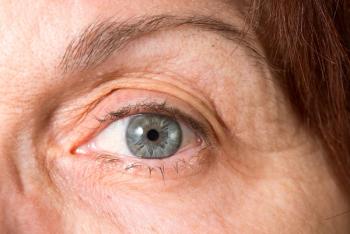
Prevent Blindness is providing free geographic atrophy educational resources for patients, care partners and healthcare professionals, including a new episode of its Focus on Eye Health Expert series.

Mohammed Genead, MD, CEO of Aviceda spoke with the Ophthalmology Times team about the company's Phase II/III SIGLEC trial part 1 results, which were shared at this year's American Academy of Ophthalmology meeting.
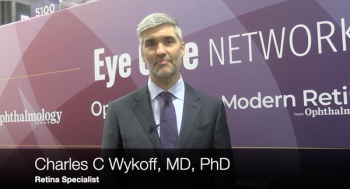
Charles Wykoff, MD, PhD, spoke with Ophthalmology Times about the GALE study data at one year looking at pegcetacoplan for the management of geographic atrophy at this year's American Academy of Ophthalmology meeting.
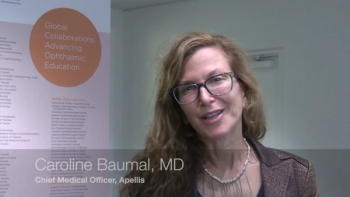
Caroline Baumal, Chief Medical Officer at Apellis, spoke with Ophthalmology Times on the GALE extension study of pegcetacoplan for geographic atrophy, and shared insights on her career transition, emphasizing the significance of mentorship and a passion for one’s work at this year's American Academy of Ophthalmology meeting in San Francisco.

This retrospective, multicenter, observational study examined Japanese patients with GA to determine the clinical characteristics and GA progression rate associated with AMD in an Asian population.
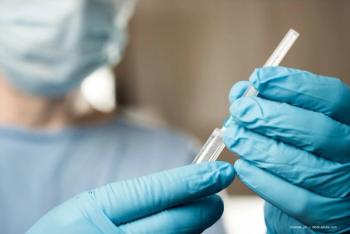
Results showed that IZERVAY met the primary objective of reducing the rate of geographic atrophy (GA) growth in patients treated monthly compared to sham-treated patients

The purpose of this investigation was 2-fold: to estimate the costs of treating GA with pegcetacoplan and to identify possible utility measures to compare treatments for GA.

New drugs are now in the pipeline to focus on treatment of the disease.

The authors of a case series say silicone oil droplets from silicone used to lubricate the McKesson syringes is the most likely cause of the droplets presumed to cause the floaters.

G6501 is a suspension of human allogeneic retinal pigmented epithelial (RPE) cells currently in development for the treatment of GA secondary to age-related macular degeneration (AMD).

The company announced preliminary US net revenues of about $74 million for the injection, approved by the FDA earlier this year.

‘Modern Family’ actor and his mother, Jamey, are sharing their family’s story of GA and AMD to raise awareness of the disease.

According to the company, GATHER-2 24-month results met the primary objective of reducing the rate of GA growth in patients treated with IZERVAY compared to sham.

Novartis acquired Gyroscope Holdings Limited from Syncona in February 2022.

Sustained delivery strategy is offering hope for patients diagnosed with the disease.
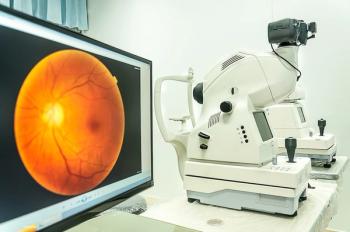
Researchers find gray GA lesions had the highest cross-modality differences
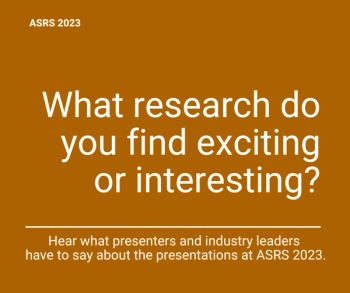
We asked, "What research at ASRS 2023 do you find exciting or interesting?" Here's what Paul Hahn, MD, PhD, Kerrie Brady, BPharm, MBA, MS, and Michael Singer, MD had to say!

According to the company, it is anticipating cost savings of up to $300 million through 2024, which includes an estimated 25% reduction in current workforce and a reduction in external expenses.

The company believes the 19-gauge filter needles may be the culprit in the SYFOVRE injections.
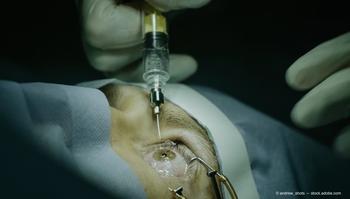
According to the company, the MAA submission is based on data from the GATHER1 and GATHER2 Phase III clinical trials.